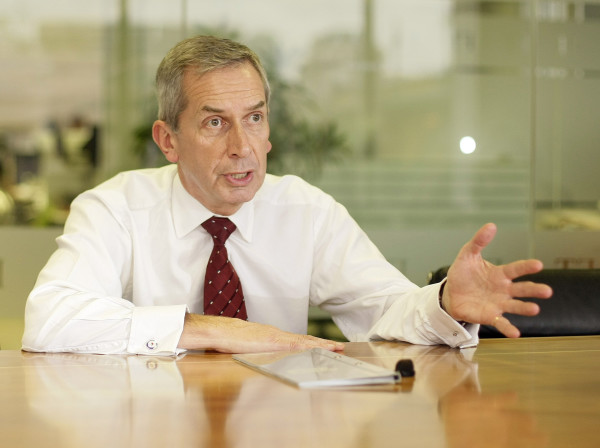

Terry Smith has defended the relative underperformance of the Fundsmith Equity fund, criticising central bankers for failing to notice the impact low interest rates and quantitive easing was having on asset prices.
The fund lost 13.8 per cent in 2022, compared with a 7.8 per cent loss of the MSCI World Index.
However Fundsmith Equity has still returned more than equities, bonds and cash since its inception in November 2010.

Source: Fundsmith
In a letter to shareholders, Smith said while a period of underperformance against the index is never welcome, it is "inevitable".
“We have consistently warned that no investment strategy will outperform in every reporting period and every type of market condition," he said.
“So, as much as we may not like it, we can expect some periods of underperformance.”
The star manager highlighted the difference between underperforming an index and the fund itself falling in value, pointing to the drop in value of all equity sectors in 2022, apart from energy.

Smith’s fund fell foul of the changing market tide in 2022, when interest rates rose and the share prices of growth companies, in which he invests, plunged as future profits were discounted.
In the letter, Smith took aim at central banks, saying their attempt to suppress market volatility since 2000 has only served to exacerbate it.
“If you count the current events, we have now had three economic and financial crises this century and it is still in its first quarter," he said.
“This would seem to illustrate that attempts to expunge volatility from the financial system are actually producing the opposite of the desired effect.”
Smith criticised central bankers’ focus on consumer price inflation, and their disregard for the ballooning of asset prices - a ballon which dramatically popped when Russia invaded Ukraine and triggered the high inflation the US and UK have struggled to contain since.
“It is inevitable that when interest rates rise, as they have now to combat inflation, longer-dated bonds fall more than short-dated ones, and so it is with equities with more highly rated shares — which are discounting earnings or cash flow further into the future — suffering 5 more in the downturn than lowly rated or so-called value stocks,” he said.
Uncertain about the future
The fund manager said he has “no idea” when the current inflationary period will end, though a recession does not concern him in terms of fund performance.
“Our companies should demonstrate a relatively resilient fundamental performance in such circumstances, and the only type of market which ends in a recession is a bear market.”
Smith reiterated his investment strategy, which is to “buy good companies, don’t overpay, do nothing”.
“Our companies are more lowly rated than they were a year ago, now being rated roughly in line with the market.
“This does not make them cheap and there is no guarantee that they will not become more lowly rated, but our focus is on their fundamental performance, as it should be, because in the long term that will determine the outcome for us as investors.”
Laith Khalaf, head of investment analysis at AJ Bell, said Smith was “characteristically combative and engaging” despite the rare underperformance, but warned investors may have to get comfortable with the fund underperforming.
“Fundsmith investors shouldn’t therefore bank on an immediate return to the glory days of yore,” he said.
“The big question is how long the current anti-growth coalition in the market will last, and act as a headwind to the performance of Fundsmith and peers.
“Fundsmith investors may need to exercise more patience than they have needed to up to this point.”
Un-activist investor
Smith expressed his surprise at the lack of willingness to communicate from many of the companies in which Fundsmith invests.
He used the example of Unilever, which appointed activist investor Nelson Peltz onto its board of directors soon after his Trian Partners announced it had bought a stake in the company.
Smith said Fundsmith had held Unilever shares since the fund was created in 2010, and during the period in which Peltz was welcomed onto the board, was its 12th largest shareholder.
He emphasised that it is not Peltz’s involvement he is criticising, it is that Unilever ignored Smith’s suggestions of problems he saw in the company’s management.
“What I find questionable is that companies mouth platitudes about wanting to attract long-term shareholders yet based on our experience, we tend to get ignored, whereas an activist who has held shares for fewer months than we have held in years gets invited to board meetings.”
Khalaf said Smith was correct in his criticism.
“Activist investors are likely to be viewed as a potentially noisy and disruptive threat to management, whereas large, long-term shareholders don’t generally want to rock the boat in public, and are perhaps consequently taken for granted,” he said.
Smith was paid more than £36mn last year, according to company accounts.
sally.hickey@ft.com




